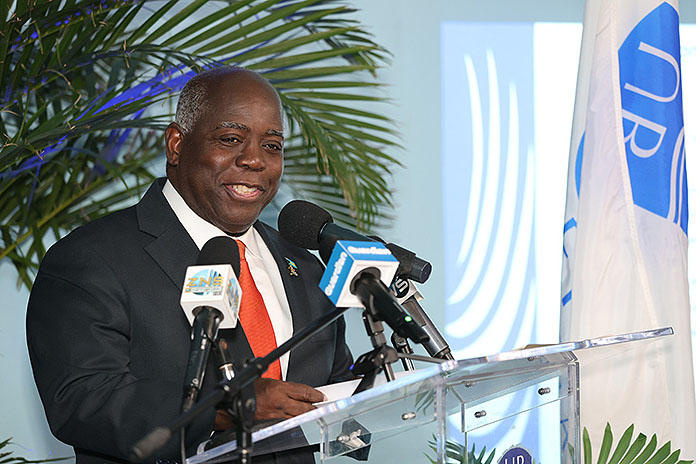
Good morning, ladies and gentlemen.
It’s a pleasure to join you today as we gather under the theme ‘Connecting the Dots’.
As auditors, much of your work entails looking back at what was done and connecting the dots so your clients can turn their eyes to the future.
A well-timed audit report is often the catalyst for change, indicating where an organisation is doing well and where it needs improvement.
In recent times, the Bahamas Chapter of the Institute of Internal Auditors (IIA) has done well to pinpoint and pilot responses to financial irregularities in our jurisdiction.
Be they the result of poor risk management, or a business control failure, the Chapter had been dutiful and decisive in executing their remit, all the while championing strategic collaboration and driving organisational change.
Across all industries, firms have to reckon with risk. Auditors know this better than most. In tandem with corporate leadership, auditors identify key risks and develop frameworks to manage them. Some risks, like a global pandemic, are hard to predict, and even harder to overcome. In fact, many businesses are still grappling with the fallout from COVID-19 – a reminder of the importance of flexibility and adaptation in an ever-changing market.
In addition to supporting corporate governance and risk management, internal audits must also consider the interests of stakeholders. Nowadays, the financials alone do not suffice. Stakeholders desire more comprehensive metrics that shed light, not just on the legal and financial legitimacy of a company, but many other areas that can strengthen operations and boost the bottom line.
One of the most powerful ways that internal audits can strengthen organisations in 2024, is through an analysis of Environmental, Social, and Governance (ESG) activities.
This, my friends, is likely the area where internal audit functions have the most potential to evolve. As the ESG regulatory environment develops, the internal audit is well-positioned to add value by contributing to ESG objectives.
One of the most pressing crises we face today, particularly as a low-lying small island developing state, is specifically related to the “E” – the environment.
As I speak, we have just quelled an unprecedented number of bush fires ablaze across our archipelago this season.
The haunting memory of Hurricane Dorian – as well as its economic impact – is still with us.
And, in the face of inaction by global superpowers, we face the harrowing projections of a future that is filled with even more deadly storms. It is now imperative that we address the magnitude of climate risk and the related financial risks that organisations will be exposed to. These risks include business disruptions, supply chain challenges, and serious revenue impacts – not just for companies but for countries.
An area of keen concern is our nation’s continued insurability. As insurance providers and underwriters witness the devastating damage and costs of these climate events, it calls this into question. We fight against a future where insurance premiums are so high that Bahamian residents and businesses cannot afford them, or worse where the risk is estimated so high that providers do not wish to enter the market.
It is clear, greater climate action, here at home and abroad, is an existential imperative for our country’s key industries – tourism in particular.
As internal auditors, you have a fundamental role to play in helping organisations address climate risk. Examining the capacity to operate sustainably within the context of climate change will be key to success.
Businesses that do not embrace ESG imperatives risk alienating stakeholders and compromising the integrity of their entire operation.
In anticipating risks, advising senior leadership, and providing independent assurance, internal auditors play an instrumental role in making local and regional firms more sustainable, profitable, and resilient.
As audit processes drive institutional improvement and provide roadmaps to navigate current and emerging challenges, the Institute of Internal Auditors has a critical role to play.
In this era of climate change and digital transformation, the training and exchange of knowledge offered by this conference will be instrumental in helping internal auditors achieve and maintain optimal competency. Stakeholders, both internal and external, are depending on you and the work you carry out. My hope is that you will seize all the professional development opportunities which come your way, because we need you to be your best so we can be our best.
In closing, I wish you all the very best in your professional journeys. May your Chapter enjoy a productive and enriching conference.
Thank you.







